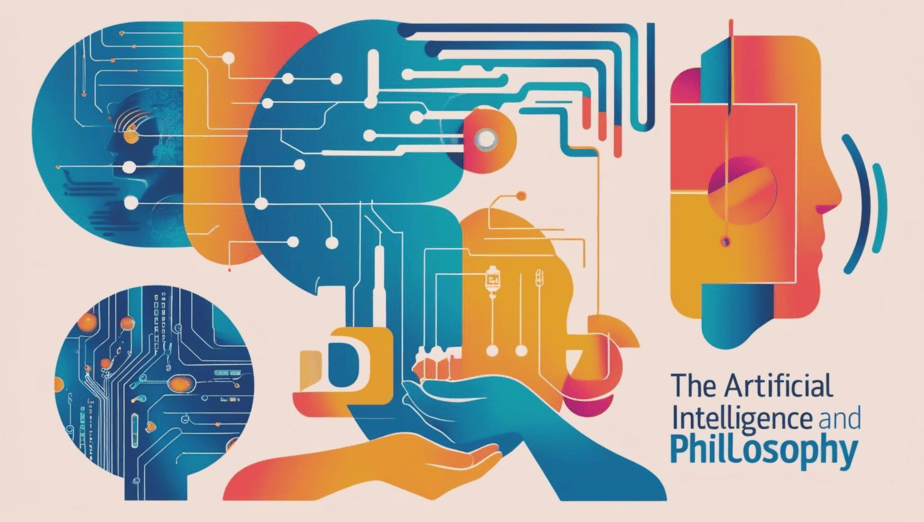Have you ever wondered how ancient wisdom still shapes the world around us today?
Philosophy, often thought of as abstract or confined to classrooms, is deeply embedded in our everyday lives.
From the policies shaping our societies to the technology we use and even the way we navigate personal challenges, philosophical thinking remains a powerful force.
It influences the big questions about justice, innovation, and purpose, offering tools to understand and improve the world.
Let’s explore how philosophy impacts modern life by examining its role in politics, technology, and personal growth.
Philosophy in Politics: The Foundation of Justice and Governance
Imagine you’re watching a political debate.
The candidates argue about fairness, rights, and how to build a better society.
At its core, these discussions are deeply philosophical.
Concepts like democracy, equality, and justice have their roots in philosophy, and they continue to guide political systems today.
Philosophy shapes the ethical frameworks that underpin modern governance.
Take the idea of democracy, for instance.
Originating from ancient Greek philosophers like Plato and Aristotle, democracy is built on philosophical debates about how societies should distribute power and ensure fairness.
Similarly, John Rawls’ concept of “justice as fairness” influences modern policies, emphasizing equality and opportunity.
These philosophical principles aren’t just abstract ideas; they play out in real-life decisions.
For example, when governments debate climate policies, they’re engaging with philosophical questions: How do we balance the needs of current generations with the rights of future ones? Or consider debates about surveillance and privacy—what’s more important, individual freedom or collective security?
Philosophy also equips citizens with the tools to participate in governance.
By encouraging critical thinking, it helps us question authority, challenge injustices, and hold leaders accountable.
For instance, movements like civil rights in the U.S. were driven by philosophical ideals of justice and equality, with leaders like Martin Luther King Jr. drawing inspiration from thinkers such as Mahatma Gandhi and Henry David Thoreau.
Ultimately, philosophy isn’t just a tool for politicians and scholars.
It’s a guide for anyone who wants to engage with the big questions about how we live together.
As citizens, understanding these philosophical underpinnings helps us make informed decisions, vote wisely, and advocate for a better society.
Philosophy in Technology: Guiding Ethical Innovation
Now let’s turn to technology. Imagine a world where artificial intelligence makes all decisions—from healthcare to justice.
How would you feel about that? The rapid advancement of technology has brought incredible benefits, but it also raises complex ethical questions.
This is where philosophy comes in.
Philosophy provides a framework for navigating the moral dilemmas posed by innovation.

Consider artificial intelligence (AI). Self-driving cars, for example, must be programmed to make life-or-death decisions in certain scenarios.
Should the car prioritize the safety of its passengers or pedestrians? These are philosophical questions about ethics and values, and they require careful consideration.
Data privacy is another area where philosophy plays a crucial role.
With the rise of social media and big data, companies collect vast amounts of personal information. Philosophers ask: Who owns this data? How should it be used?
And what happens when the pursuit of profit conflicts with individual rights?
By engaging with these questions, tech companies and governments can create policies that balance innovation with ethical responsibility.
Moreover, philosophy helps us understand the broader implications of technology. As humans, we’re deeply connected to our tools.
Philosophers like Marshall McLuhan have explored how technology reshapes our identities and relationships.
For example, smartphones have changed how we communicate, think, and even perceive time.
Philosophical inquiry ensures we remain aware of these changes, helping us use technology in ways that align with human values.
In short, while engineers and programmers create the tools, philosophers help ensure those tools are used responsibly.
By addressing ethical dilemmas, examining human impact, and fostering critical thinking, philosophy keeps technology grounded in our shared humanity.
Philosophy and Personal Growth: A Path to Self-Understanding
Beyond politics and technology, philosophy also profoundly influences our personal lives.
At some point, we’ve all asked questions like, “What is my purpose?” or “What does it mean to live a good life?”
These are philosophical inquiries, and exploring them can lead to personal growth and fulfillment.
Philosophy encourages self-reflection, helping us examine our beliefs and values. Consider Stoicism, a school of thought that emphasizes resilience and inner peace.

Stoic philosophers like Marcus Aurelius and Epictetus taught that while we can’t control external events, we can control our reactions to them.
This perspective is incredibly relevant today, helping people navigate stress, uncertainty, and challenges with grace.
Similarly, existentialist philosophers like Jean-Paul Sartre and Simone de Beauvoir explored questions of freedom and responsibility.
Their ideas empower individuals to take ownership of their lives, make authentic choices, and find meaning even in difficult circumstances.
Philosophy also provides practical tools for ethical living.
Aristotle’s concept of the “Golden Mean,” for example, teaches us to seek balance in our actions—neither too much nor too little.
This principle can guide decision-making in daily life, from managing work-life balance to building healthy relationships.
Perhaps most importantly, philosophy reminds us to stay curious. By encouraging us to question, learn, and grow, it fosters a mindset of lifelong exploration.
This curiosity not only enriches our personal lives but also deepens our connections with others and the world around us.
Conclusion
Philosophy may seem like an ancient discipline, but its relevance in modern life is undeniable.
It shapes the way we govern, innovate, and grow as individuals.
In politics, it provides the ethical foundation for justice and governance.
In technology, it ensures that innovation aligns with human values.
And in personal growth, it offers tools for resilience, meaning, and ethical living.
In a fast-changing world, philosophy equips us with the ability to ask better questions, think critically, and act thoughtfully.
While it may not provide all the answers, it opens the door to deeper understanding and progress. After all, isn’t that the first step toward building a better future for ourselves and our society?


